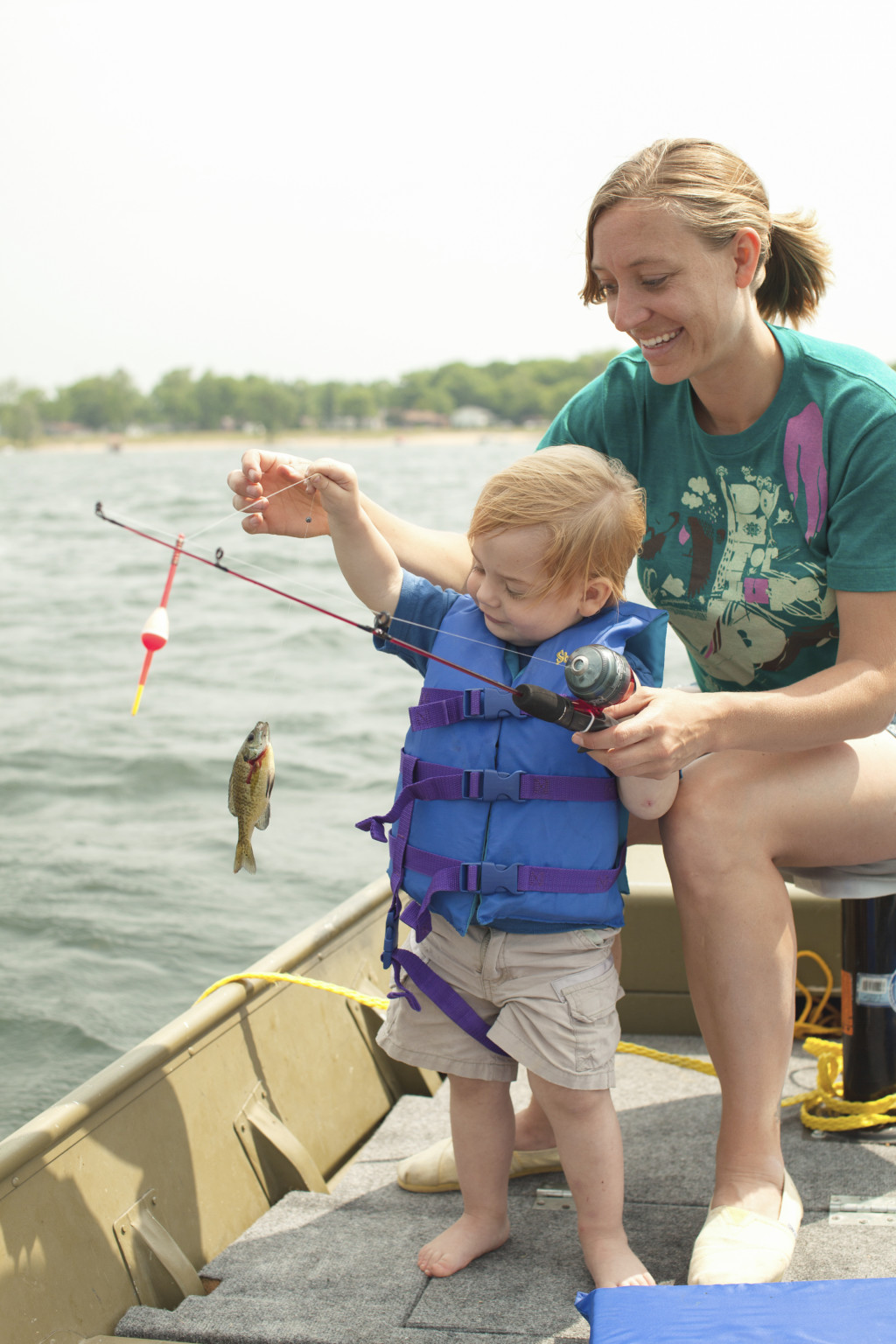Whether you’re an avid angler or would rather have a root canal than put a worm on a hook, there’s no denying that fishing is a big part of Michigan culture. Which isn’t surprising, given Michigan is up to its gills with potential fishing spots, with over 11,000 lakes and nearly 350 major rivers to choose from.
But what many people don’t realize, including some anglers themselves, is that the sport also plays a vital role in ensuring the health of our state’s waterways. That’s right – going fishing is actually good for the environment.
And with summerlike weather almost – almost – here, many of the 1 million Michiganders who are expected to buy fishing licenses this year will soon be heading out on their boats, wading into shallow water or simply finding a good spot along a bridge or pier to drop in their lines. That makes right now a perfect time to take a look at the important role that fishermen and -women play in wildlife conservation.
“Fishing is a good way to spend time together as a family, and a great opportunity to let your kids know how important it is to be conscious of the environment,” said Matt Pedigo, chair of the Michigan Wildlife Council, created in 2013 to increase public knowledge of the importance of wildlife management and conservation.
Recreational fishing and good environmental stewardship are strongly linked, with sound fishing practices making for a healthy ecosystem.
“Michigan is home to more than 150 species of fish, many of which wouldn’t be here if not for the fishing season regulations that are in place,” Pedigo said. “And fishing license dollars go directly back into supporting these beautiful wildlife and natural resources.”
Perhaps the best thing about fishing is that it’s a low-cost activity that’s easy to get the hang of. All you need to get started is a rod, a reel, some bait and a fishing license, which is available online or at any sporting goods retailer. When you’re getting your license, make sure to also pick up a fishing guide, especially if you’re planning to keep your catch – it’s important to have facts such as size limits and daily catch limits right at your fingertips. And it’s also a reference guide to local fish that your little bookworm may dive right into.
“Fishing is also good for building a connection with nature,” Pedigo said. “Many environmentalists got their start sitting still on a boat in the middle of a lake or lounging under a tree on the shore with their line in the water, just soaking in the outdoors. It’s a kind of learning experience you don’t get in a classroom or from watching TV.”
But it’s important to maintain realistic expectations of your kids, especially if they’re on the younger side and you’re taking them fishing for the first time. It may be wise to spread the activity over a full day or even a weekend, making sure to include some swimming time, tree climbing and trail hiking. And even if it may scare the fish away, it’s hard to keep a kid from throwing rocks in the water or doing cannonballs off the edge of a dock.
And don’t forget to be prepared for everything the outdoors can throw at you, especially here in Michigan: raincoats, sunscreen, bug repellant and heavy hoodies may all come in handy, often all in a single day. Of course, as with anything water-related, you should also bring at least one set of dry clothes – for some reason, gravity seems to pull a little harder on kids in areas where they can get wet.
But even if you come home soggy and empty-handed, don’t forget that it’s not necessarily a trophy bass you were after – it was building family memories. It just so happens this type of family bonding is also something that benefits Michigan’s environment.












Love fishing whenever we can.